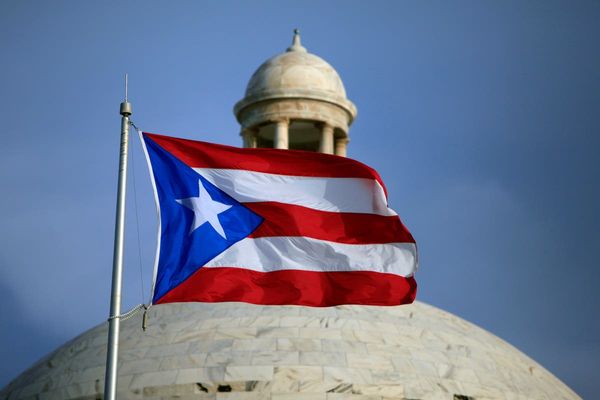
Two weeks after Russia invaded Ukraine, Brazil's agriculture minister was on a plane to Canada to head off a potential crop crisis.
Brazil, one of the world's largest agricultural producers, mostly fertilizes its crops with potash shipped from Russia and Belarus. When the two countries effectively halted potash exports during the Ukraine conflict, Brazil approached resource-rich Canada for backup.
Tereza Cristina, Brazil's minister of agriculture, said in a public statement she had secured an undisclosed increase in exports of potash from Canadian producers after meetings with government officials and industry executives.
Before the Ukraine conflict, Brazil imported about 36% of its potash from Canada, compared with close to half imported from Russia and Belarus.
"We can and must strengthen our ties and strengthen long-term partnerships, with a view to ensuring stability and profitability for all links in the production chain," Ms. Cristina said.
The growing interest in Canadian potash and other commodities is a reflection of how the conflict in Ukraine is shaking up and realigning global trade flows.
Buyers seeking replacements for commodities that are restricted in Russia are also looking to Brazil for oil, to South Africa for platinum and Argentina for wheat.
Canada, which shares similar climate and geographical features, produces many of the same commodities as Russia. Both countries are among the world's largest producers of crude oil, uranium, nickel and potash. Along with Ukraine, they are among the world's largest wheat exporters.
Buyers are turning to Canada to replace the energy, food and minerals that are being blocked because of the war and international sanctions on Russia.
Even some countries that have sufficient domestic crops are calling on Canada for additional imports to build reserves as insurance against further geopolitical or climate disruptions.
"The whole world is coming to Canada," said Murad Al-Katib, chief executive of AGT Food and Ingredients, which buys grains and pulse crops from Canadian farmers and ships them to 120 countries.
He said demand for Canadian crops is surging in countries such as Turkey, Algeria and Tunisia.
U.S. President Biden warned last week that global food shortages "will be real," and the issue came up as a source of concern at meetings with leaders of the Group of Seven leading nations.
He said the U.S. and Canada would increase and more rapidly export the food resources.
Ken Seitz, chief executive officer of Canadian potash giant Nutrien Ltd., met with Ms. Cristina when she traveled to Canada.
Nutrien subsequently increased its potash production this year by more than 10% to 15 million metric tons from 2021. The company is the world's largest corporate producer of potash.
"With the uncertainty of potash production in Eastern Europe and global food security at increasing risk, Nutrien is ramping up potash production," Mr. Seitz said.
Argentina, too, has seen a surge in interest.
Gustavo Idígoras, head of a group that represents the country's biggest grain processors and exporters, says he has received emails from French and Italian supermarkets seeking sunflower oil, as well as Egyptian and Lebanese government officials wanting long-term wheat and corn contracts.
Indian clients are hoping Argentina can cover a gap in soy and sunflower oil that they used to buy from Ukraine, Mr. Idígoras said.
"They are asking us for products that they've never asked for before," he said.
The big question for countries facing this fresh demand is whether they can deliver the goods.
Copper and nickel, which are mined in Russia, are found widely in Australia, too, but the country is ill-prepared to fill any gaps.
After years of underinvestment in the sector, Australia says ramping up production quickly will be a challenge.
Canada, while poised to benefit across multiple sectors, also faces hurdles.
Environmentalists have forced Canadian and U.S. governments to scrap plans to build pipelines that would enable Canada to export more oil.
Meanwhile, overstretched railway and port networks have little additional capacity to ferry more commodities.
Canada is a big exporter of wheat and canola, but crop contracts are scarce after a drought last year. Industry experts said supply could increase if farm yields return to normal levels this year.
Mr. Al-Katib, of AGT, said grain shippers are finding it difficult to find empty shipping containers because most of those are being sent to China to help ease backlogs of commercial goods that have built up during the Covid-19 pandemic.
Despite those challenges, Canada and many of its commodity producers are still in a plum position. Higher prices for oil and potash are resulting in fatter profits and healthier government balance sheets.
The province of Alberta, which receives most of its revenue from the oil-and-gas industry, expects a budgetary surplus for the coming fiscal year, its first in eight years, as revenues are boosted by higher oil prices.
Canada's Minister of Natural Resources Minister Jonathan Wilkinson said officials from a handful of countries approached him in Paris last week during International Energy Agency meetings with inquiries about substituting Russian imports with Canadian potash, uranium and agrifood products.
"I would expect that there will probably be more items that countries identify that Russia currently supplies and perhaps Canada may be able to assist with either now or in the long term," said Mr. Wilkinson.
Increasing demand for Canadian resources prompted Pavilion Global Markets, a Canadian investment advisory firm, to tell clients in a note last week that it expects Canada's stock market, which lists many materials and commodity stocks, to emerge as one of the biggest beneficiaries from global efforts to isolate the Russian economy.
The S&P/TSX Index, which tracks 239 companies listed on the Toronto Stock Exchange, has risen 3.5% this year. The S&P 500, on the other hand, has dropped 4.6%.
Canada has the fourth-largest oil reserves in the world. Producers in the province of Alberta, where most of the oil is located, transport almost all of their oil to U.S. refineries through pipelines and by rail.
Last week, Mr. Wilkinson said Canadian oil and natural gas producers could raise production by 300,000 barrels a day, adding to supplies that have hit record levels in recent months.
Sonya Savage, Alberta's energy minister, said on March 25 that Canada could produce even more, but only if the federal government changed policies that have emphasized greenhouse-gas reductions and reducing reliance on fossil fuels.
"We need to be doing more than 300K/day and faster," said Ms. Savage, on Twitter. "And we can, if the federal govt will get out of the way. It's time to start treating our oil and gas reserves as a strategic asset to be proud of, rather than a liability to be phased out."
Canada's largest uranium producer, Cameco, is set to increase production at its mines in Canada and the U.S., said a company spokesman.
The company said it would boost output at a mine in northern Saskatchewan by 10 million pounds by 2024.
Cameco would still be able to increase production by another 45%, if uranium prices justify it, the spokesman said.
Cameco, which is publicly traded, has registered a 17% increase in its stock this year.
Paul Vieira, Luciana Magalhaes and Ryan Dube contributed to this article.







